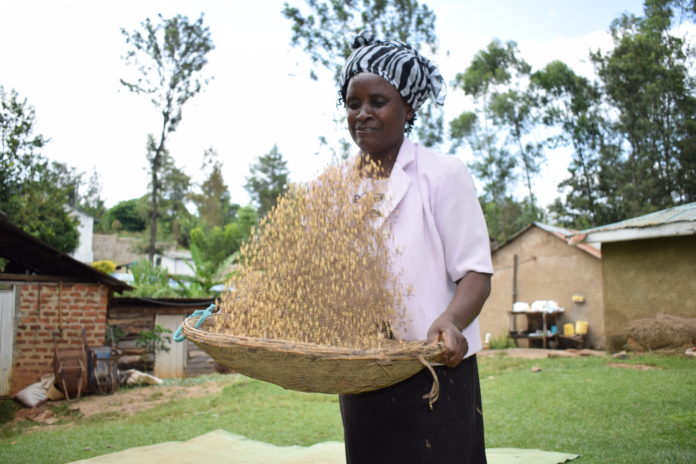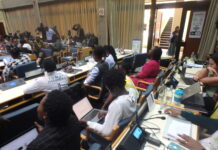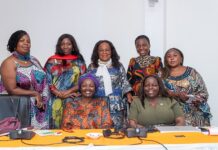By Judy Kamau
When you walk into her homestead in Mumias, Kakamega county, the various agricultural products and structures that support what she says she loves doing depict her passion for mixed farming.
Meet mama Fassie Mbone or Brenda Fassie as she is referred to by the younger generation, due to her activism and the way she packages her messaging using tactics that resonate with the masses – just like the late South African anti-apartheid African queen of pop, Brenda Fassie.
She is a farmer, who has not only advocated for prioritization of agriculture by the county and national government but used the trade to reach out to the most vulnerable in the society.
She has been nicknamed ‘Martha Karua’ due to her passion for social justice, how she uses the law to influence change in her community and her zest for issue-based politics.
“I really follow the law, when you offend me I don’t go making noise or quarreling, no, I follow the law, so that’s why they call me Martha Karua.” She interjects with a smile.
Fassie has helped transform the lives of 12 people living with HIV and Aids in her locality, the majority of them young women. She used soya beans farming as an engagement hook. A trade she has perfected since 2003.
17 years later, the women under the umbrella group of Western Organization of People Living with HIV Aids (WOLPA), say they are ambassadors of Hope.
“They are ambassadors of hope because they had lost hope when they were really sick, they were in denial because they had been neglected, discriminated against and were being treated as outcasts in the community, but after going for counseling and treatment, and were given Soya flour which is nutritious, everything changed, our love of soya started and defined our sustainability conversations ” Fassie adds.
Conversations on the creation of a support group and economic empowerment started. The market was not conducive but the women were so inspired, nothing could stop them.
“We would literally do barter trade, if you have soya, you take it to somebody who needed the legumes and she or he could give you a bunch of bananas or vegetables. The soya was not marketable but we persisted and insisted on getting market opportunities.” She further noted.
Through Anglican Development Services (ADS), market linkages were created. The women were introduced to Cereals Growers Association (CGA). What mama Fassie calls their turning point
“ADS brought somebody from CGA and we sold 300 kilos of Soya. It is so exciting because when you plant your soya you know there is a ready market. If you have for example 50 kilos or a 100 you just multiply by 50 or the best price for the season.”
“ The county government launched Soya as one of the flagship value chains in the Kakamega, alongside maize and poultry. Farmers were given seeds to plant but there are no market linkages. The women and youth are lobbying for access to markets if the county provides seeds and no markets the economy and food security in the county will be compromised because farmers will lose hope.” Florence Omutimba a Field Officer at the Anglian Development Services.
Through innovation and training, the group has a range of value-added products, from roasted soybeans, soy flour, and even doughnuts.
“We focus on building the capacity of smallholder farmers to enable to enhance innovation towards value addition, advocate for their civic space, their right to food security, nutrition and also for inclusive markets. As the Civil Engagement Alliance, we believe that youth are citizens of today and not a citizen of the future, we believe youth are leaders of now and not leaders of the future, therefore we cannot wish youth inclusion in agriculture away, it is of absolute agency for the country.” Susan Githaiga – Country Manager, ICCO Cooperation Kenya.
For the 12 ambassadors of hope, the phrase, ‘an equal world is an enabled world’, will make sense if the enablers that contribute to profitable farming are affordable and equally accessible to all.














